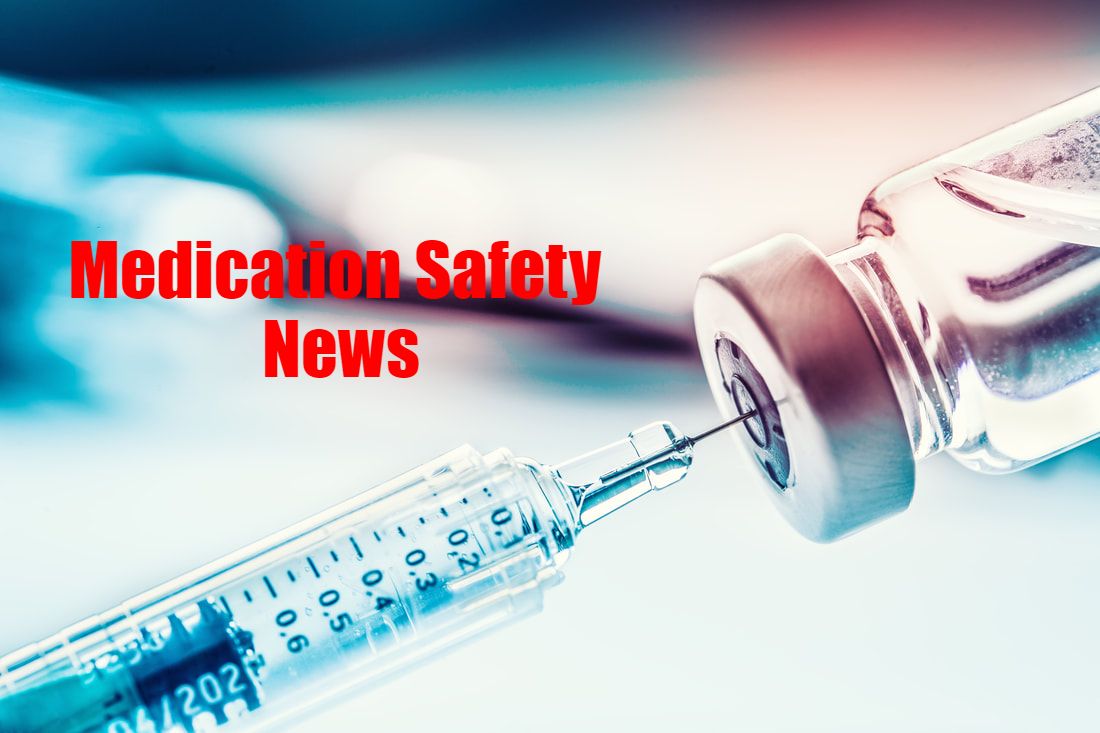|
29 MARCH 2017 | GENEVA/BONN - WHO today launched a global initiative to reduce severe, avoidable medication-associated harm in all countries by 50% over the next 5 years.http://www.who.int/mediacentre/news/releases/2017/medication-related-errors/en/
“approximately half of the iatrogenic complications that occur in neonatal intensive-care settings are related to medication errors.” http://onlinelibrary.wiley.com/doi/10.1111/j.2042-7174.2012.00210.x/full
Researchers study the accuracy of drug label identification by staff and find a magnifier dramatically improved speed and accuracy of reading a drug label.www.ncbi.nlm.nih.gov/pmc/articles/PMC4645358/
"Software programs developed to prevent in-hospital medication errors are not catching as many mistakes as expected."www.nxtbook.com/nxtbooks/aacn/boldvoices_201608/index.php?startid=7
"The exact same error, administering insulin instead of influenza vaccine, has been reported many times around the world, including several cases in the US. Some cases have been fatal."www.ismp.org/newsletters/acutecare/showarticle.aspx?id=1138
.."Many of these containers have little difference in shape or color. Even worse, the containers have the drug name, concentration, lot number, and expiration date embossed into the plastic using transparent, raised letters, which are virtually impossible to read." www.pharmacytimes.com/publications/issue/2006/2006-01/2006-01-5135
“In her haste to give the already-late medications, she fails to notice the “Do not crush” warning on the electronic medication administration record.” americannursetoday.com/medication-errors-dont-let-them-happen-to-you/
"Healthcare practitioners are repeatedly challenged by unexpected problems they encounter due to both large and small work system failures that hinder patient care. A medication needed for a patient is missing on a patient care unit; an order is never received in the pharmacy; access to the automated dispensing cabinet is crowded and time-consuming; the new barcode scanner has a high rate of scanning failures; a critical drug is in short supply—the list of failures is varied and quite long, often making it difficult or impossible to execute tasks as designed." www.ismp.org/newsletters/acutecare/showarticle.aspx?id=1139
An FDA safety review has shown that fluoroquinolones when used systemically (i.e. tablets, capsules, and injectable) are associated with disabling and potentially permanent serious side effects that can occur together. These side effects can involve the tendons, muscles, joints, nerves, and central nervous system. US Food and Drug Administration
"In 2010, the Institute for Safe Medication Practices (ISMP) declared the “syringe pull-back” method unsafe for preparing IV medications (ISMP Medication Safety Alert Acute Care 2010;15:13; http://goo.gl/aM0SjO). Despite the imperative to move away from the practice, few institutions have taken additional safety measures such as implementing IV workflow technologies, medication safety experts warn." - By David Wild, Pharmacy Practice News
|
|
Copyright 2020 Janeil Enterprises, LLC
For more information please contact us at [email protected] |

